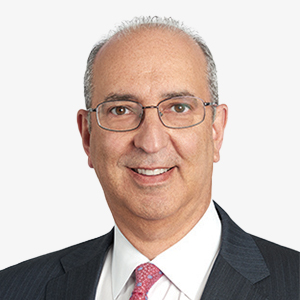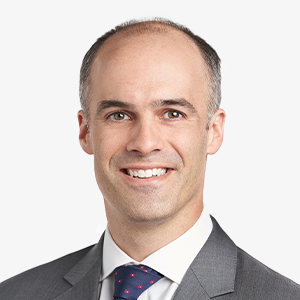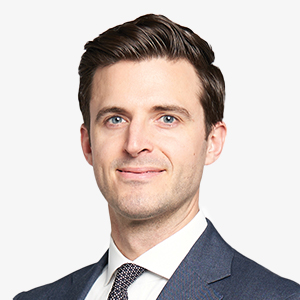Equity Income Fund
Mutual Funds | Equities
Equity Income Fund
YTD RETURN
0.00%
Why Invest
Lower Volatility
Defensive approach targeting companies with strong free cash flow generation and low leverage can typically cushion market volatility and help mitigate downside
Quarterly Income
Our focus on dividend stability and growth, while seeking to avoid companies cutting dividends has historically led to quarterly income
Experienced Portfolio Management
Seasoned team with 30 years average experience through multiple market cycles seeks to examine capital allocation priorities of management teams and identify dividend growth potential
Morningstar Rating
For each retail mutual fund with at least a three-year history, Morningstar calculates a Morningstar Rating based on a Morningstar Risk-Adjusted Return measure that accounts for variation in a fund’s monthly performance (including the effects of sales charges, loads, and redemption fees), placing more emphasis on downward variations and rewarding consistent performance. The top 10% of funds in each category receive five stars, the next 22.5% receive four stars, the next 35% receive three stars, the next 22.5% receive two stars and the bottom 10% receive one star. (Each share class is counted as a fraction of one fund within this scale and rated separately, which may cause slight variations in the distribution percentages.) The Overall Morningstar Rating for a retail mutual fund is derived from a weighted average of the performance figures associated with its three-, five- and ten-year (if applicable) Morningstar Rating metrics. Ratings are ©2024 Morningstar, Inc. All Rights Reserved. The information contained herein: (1) is proprietary to Morningstar and/or its content providers; (2) may not be copied or distributed; and (3) is not warranted to be accurate, complete or timely. Neither Morningstar nor its content providers are responsible for any damages or losses arising from any use of this information.
Gross expense ratio represents the total annual operating expenses that shareholders pay (after the effect of fee waivers and/or expense reimbursement). The Fund’s Investment Manager (the “Manager”) has contractually undertaken to waive and/or reimburse certain fees and expenses of the Fund so that the total annual operating expenses are capped (excluding interest, brokerage commissions, acquired fund fees and expenses, taxes including any expenses relating to tax reclaims, dividend and interest expenses relating to short sales, and extraordinary expenses, if any) through 08/31/2027 for Institutional Class at 0.80%, 1.16% for Class A, 1.91% for Class C, and Class R3 at 1.41% (each as a % of average net assets). As of the Fund’s most recent prospectuses, the Manager was not required to waive or reimburse any expenses pursuant to this arrangement. Absent such arrangements, which cannot be changed without Board approval, the returns may have been lower. Information as of the most recent prospectuses dated December 18, 2023, as amended and supplemented.
Beta is a measure of market-related risk (expressed between 0-1%) of a portfolio compared to that of the overall market, as represented by an index. The lower the beta the lower the sensitivity to the movements of the market, as represented by the index.
Standard Deviation is a statistical measure of portfolio risk. The Standard Deviation describes the average deviation of the portfolio returns from the mean portfolio return over a certain period of time. Standard Deviation measures how wide this range of returns typically is. The wider the typical range of returns, the higher the Standard Deviation of returns, and the higher the portfolio risk.
Sharpe Ratio characterizes how well the return of the Fund compensates the investor for the risk taken relative to a risk free cash investment. When comparing two funds versus a common benchmark, the one with a higher Sharpe Ratio provides better return for the same risk (or, equivalently, the same return for lower risk).
Up Capture Ratio is a measure of the manager’s performance in up markets relative to the market itself. A value of 110 suggests the manager performs ten percent better than the market when the market is up. During the selected time period, the return for the market for each period is considered an up market period if it is greater than zero. The returns for the manager and the market for all up periods are calculated. The Upside Capture Ratio is calculated by dividing the return of the manager during the up market periods by the return of the market during the same periods.
Down Capture Ratio is a measure of the manager’s performance in down markets relative to the market itself. A value of 90 suggests the manager’s loss is only nine tenths of the market’s loss. During the selected time period the return for the market for each period is considered a down market period if it is less than zero. The returns for the manager and the market for all down periods are calculated. The Downside Capture Ratio is calculated by dividing the return of the manager during the down periods by the return of the market during the same periods.
Active Share measures the percentage of mutual fund assets that are invested differently from the benchmark, and will range between 0% and 100%, Funds with an active share below 20% are likely to be pure index funds, while those with an active share between 20% and 60% are considered to be closet index funds.
30-day SEC yield is similar to a yield to maturity for the entire portfolio. The formula is designated by the Securities and Exchange Commission (SEC). Past performance is no guarantee of future results. Absent any expense cap arrangement noted above, the SEC yields may have been lower. A negative 30-Day SEC yield results when a Fund’s accrued expenses exceed its income for the relevant period. Please note, in such instances the 30-day SEC yield may not equal the Fund’s actual rate of income earned and distributed by the fund and therefore, a per-share distribution may still be paid to shareholders. The unsubsidized 30-day SEC yields for Class A, Class C, Class E, Class R3 and Institutional Class are 1.63%, 0.85%, 2.71%, 1.35% and 2.01% respectively.
William D. Hunter, Managing Director, joined the firm in 2006. Will is a member of the Messinger Group and serves as Portfolio Manager on the Equity Income strategy. Prior to joining the firm, Will worked at JPMorgan's Investment Bank as an analyst in Chemical Equity Research after working in Equity Specialty Sales in Energy and Industrials. Will received his BA from Columbia University.



